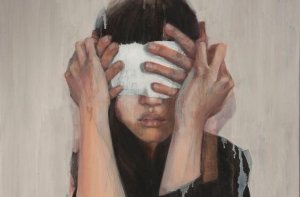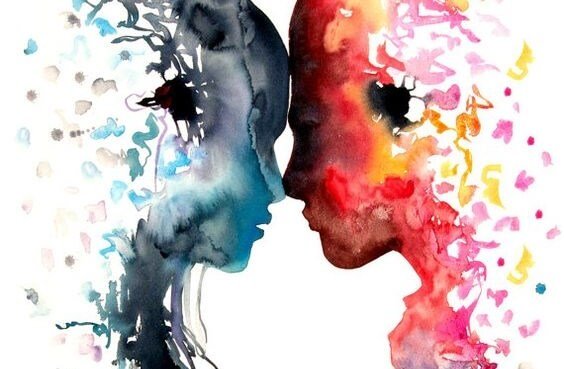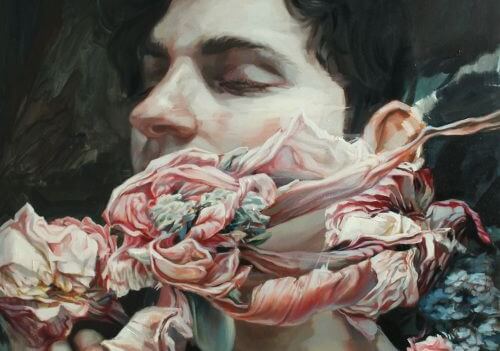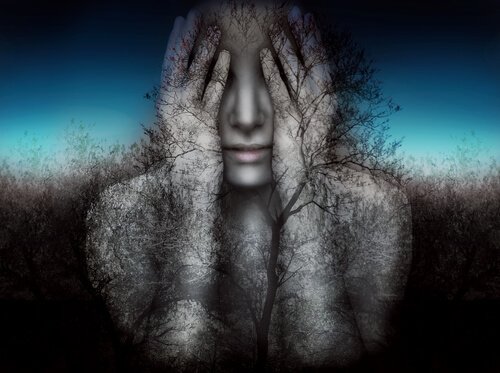How to Identify Your "Blind Spots" In Love


Written and verified by the psychologist Valeria Sabater
To understand what these blind spots really are we’ll start by doing a quick experiment. Close your eyes for a few seconds, open them, and find a window to look out of. Let the sunlight hit your face for a few more seconds.
Now focus your eyes somewhere else. You won’t notice it, but there are photoreceptors in your neurons, tiny nerve cells that capture the light and send the information to your brain almost instantaneously.
But there’s a part of your retina where there are no photoreceptors; these are called blind spots. Since the eye doesn’t capture any images, what normally happens is that we see the world with small white bits that come from these blind spots. But what we see doesn’t lose any detail. It’s perfect, wonderful, because it shows us all the shades of someone’s face or a beautiful landscape…
But then how is that possible? If there’s an empty space, a blind spot in our retina, how can we see the world so clearly? The answer is as simple as it is disconcerting: our brains “fill in” the empty spots.
As strange as that may sound, the same thing happens in the psychological realm. There are things around us that we don’t see. They’re blank spaces, usually negative facts that disappear on the horizon of our conscious minds.
Once again it’s the brain that takes control and filters the information we receive. That’s why your negative perceptions get dulled. Hence your brain puts blinders up to soften the blow of disappointment. This fine art of self-deception is especially common in the world of love and relationships.

Blind spots, or our unwillingness to accept things how they are
“My girlfriend isn’t controlling or jealous. She’s just worrying about me because she love me so much.” “No, we haven’t broken up. It’s just that he’s really stressed with work right now and needs a break. He’s got a lot of things going on, so I understand… but there’s nothing wrong, we love each other just as much as always.”
Blind spots are these people’s life boats they cling to in order to stay afloat. Because humankind’s trick of self-deception is one of our most sophisticated strategies. We use it to smother the embers of stress. We throw our worries at it.
This mental haze created by blind spots sets in motion strategies ranging from classic denial to rationalization to selective attention, where you only focus on what you want to, ignoring the rest.
The poet Antonio Machado was so right when he said there’s something much worse than seeing the dark side of reality: not seeing it at all. It’s a very common thing for us to do when we’re afraid of the huge maze of love. We think it’s better “not to see” the one we love than to “lose” them.

How to shine a light on our blind spots
Robert Trivers is a sociobiologist and anthropologist who’s well-known for his work on self-deception. According to him, this well-tuned strategy that’s so common in human beings is much more sophisticated than a simple lie. What he means is that the act of lying to yourself takes a much deeper, more delicate framework.
Plus when you manage to ship the evidence off to your unconscious mind and lie to your conscious mind, the cognitive cost is huge. You’ll become your own victim.
“A lie would have no sense unless the truth were felt dangerous.”
-Alfred Adler-
If you’re wondering how to shine a light on your blind spots, the answer is that it will be hard. When we try to open up the eyes of someone who’s in love, they’ll probably react with denial.
That’s why the best thing you can do before you fall into the same trap, if you’re feeling weak in integrity, self-esteem, and values, is to try to watch out for the most common blind spots in relationships.
- Don’t fall into the most common blind spot in every relationship: idealization.
- You have to see the other person as they are, no anesthesia or artificial sweeteners. You shouldn’t minimize the things you don’t like, or overemphasize the things you do just to feel better. All that does is make things feel off, and hurt the other person.
- Don’t distort reality by reshaping yourself with ideas that don’t align with your surroundings, thoughts, and feelings.
- Don’t put off today’s disappointment for tomorrow.

As Albert Camus once said, “truth, like light, blinds. Falsehood, on the contrary, is a beautiful twilight that enhances every object…” So don’t live in the twilight, because at the end of the day you’re just postponing the pain. Instead, have the courage to open your eyes to the truth.
This text is provided for informational purposes only and does not replace consultation with a professional. If in doubt, consult your specialist.








